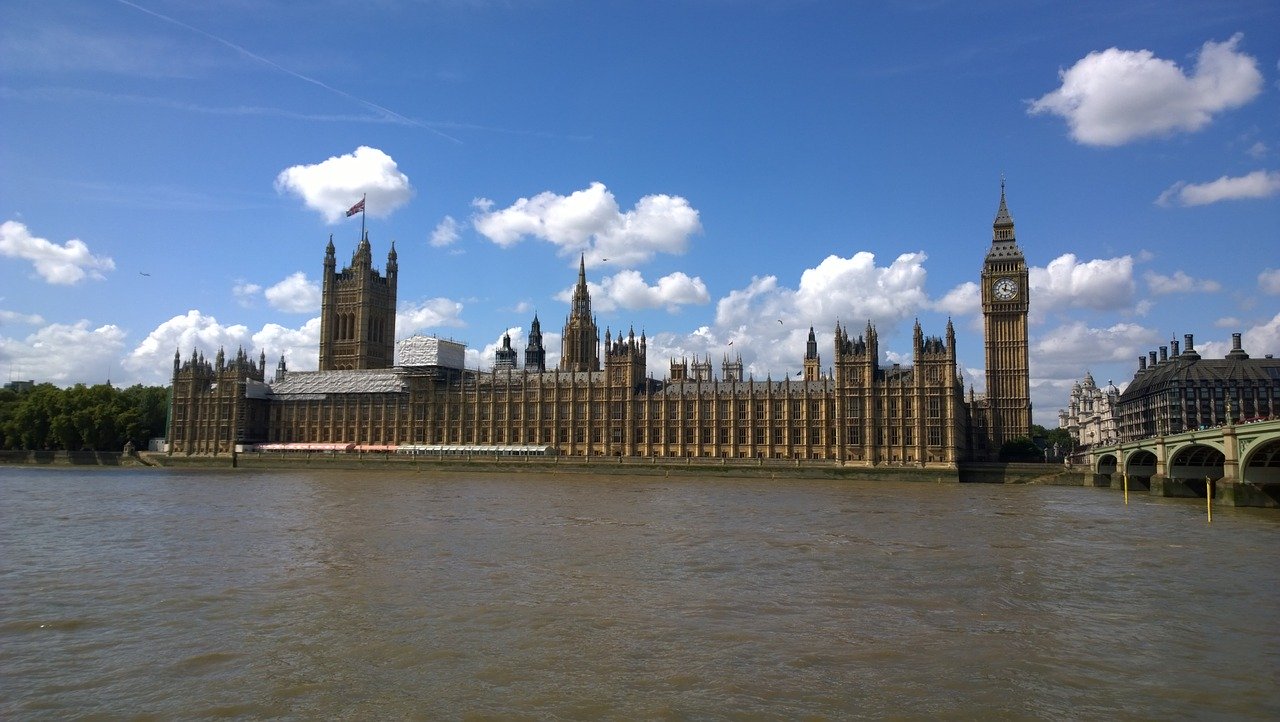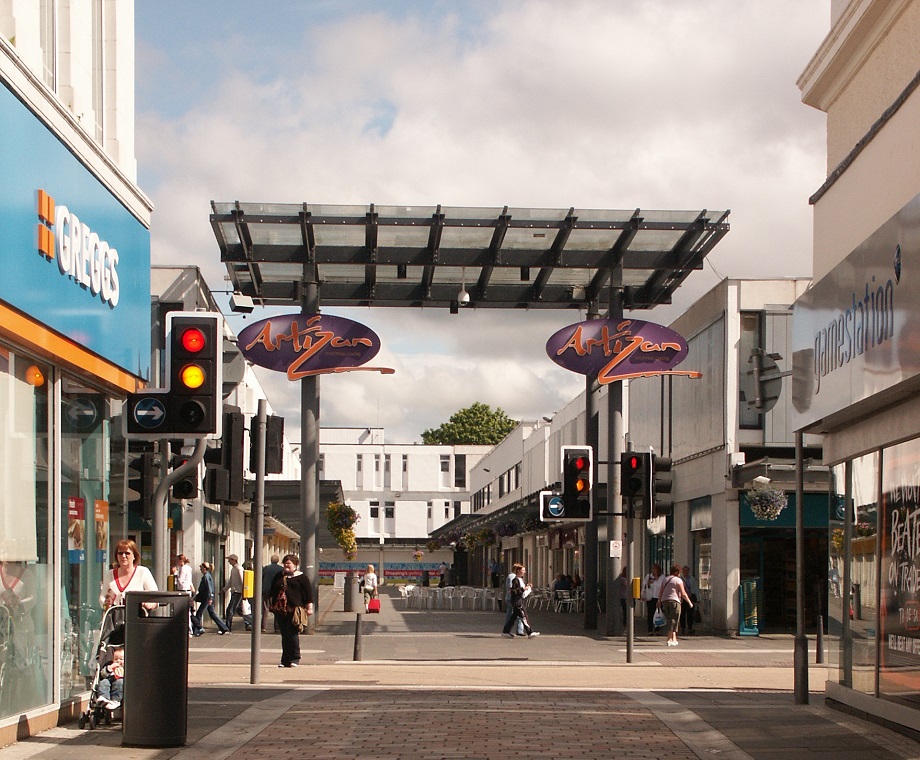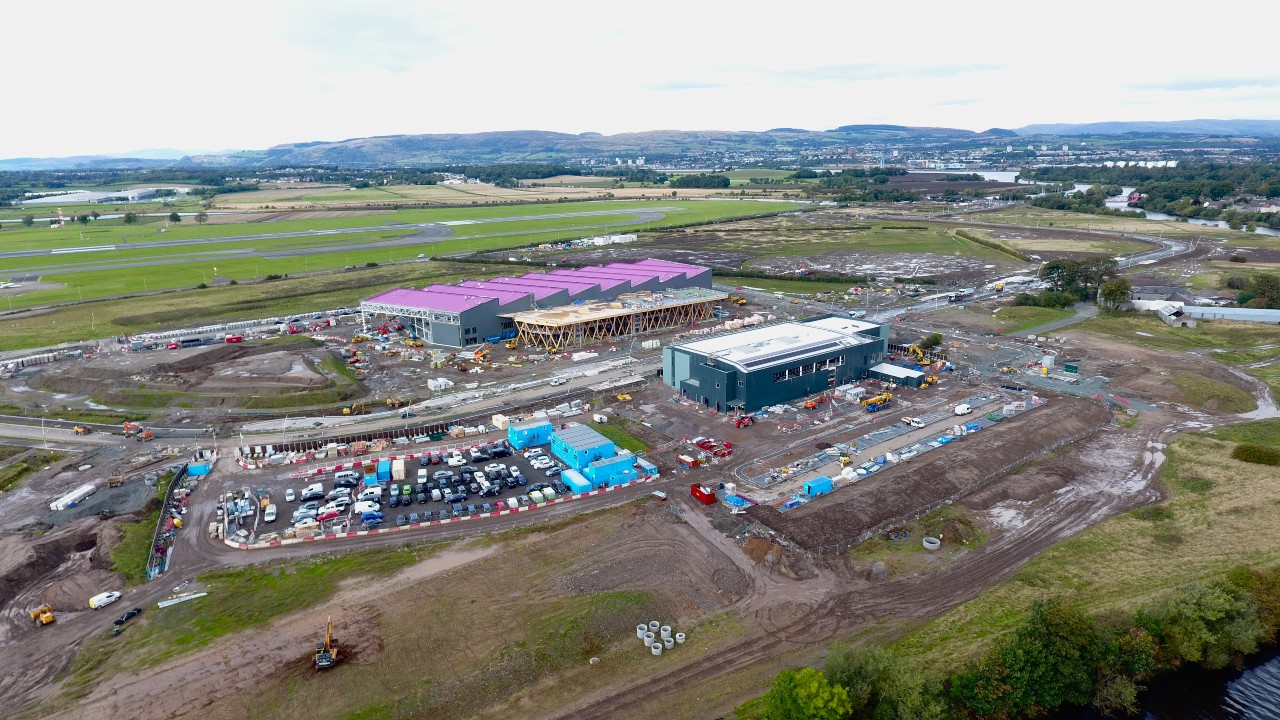UK Budget: £170m levelling up funding for Scotland
The UK Government has published its Autumn Budget and Comprehensive Spending Review which allocated £170 million in levelling up funding for Scotland.

With announcements relating to matters which are devolved to Holyrood - for example £24 billion earmarked for housing or £21bn for roads, Chancellor Rishi Sunak said his spending would send an average of £4.6bn per year extra to Holyrood, resulting in “the largest block grants for the devolved administrations” since they were established.
In his budget speech, Mr Sunak said the levelling up fund aims to invest in infrastructures which will improve every day life for people across the UK.
The £170m allocated to Scotland will back projects in places including the redevelopment of Inverness Castle, the renovation of the Westfield Roundabout in Falkirk, and a new marketplace in Aberdeen city centre - each of which is getting £20m of funding.
A redevelopment of the Artizan shopping centre in Dumbarton is getting another £20m.

The funding will be used for the transformation of B-listed Glencairn House into a state-of-the-art library, museum and community facility; the creation of a publicly accessible archive in the existing library building; the acquisition, part demolition and preparation for redevelopment of the Artizan Centre; and the completion of the Connecting Dumbarton project to enhance active travel connections between the Town Centre, waterfront path and Dumbarton Central train station.
West Dunbartonshire Council leader Councillor Jonathan McColl said: “This is fantastic news for Dumbarton and West Dunbartonshire as a whole and we are delighted to have beaten off strong competition to receive this funding to invest in our area.
“I’d like to thank officers for their hard work in preparing these bids under difficult time pressures and successfully unlocking this investment.
“I have no doubt that our track record of investment by the Council, Scottish Government and other partners in major regeneration projects throughout West Dunbartonshire, played a big part in our successful bid. The panel will have had confidence that West Dunbartonshire have significant experience working collaboratively and spending public money wisely for the benefit of our communities.
“We are committed to improvements in our town centres, and the three focal points in our bid – the Artizan, Glencairn House and improving active travel routes through Connecting Dumbarton – will bring long-term enhancements to our Town Centre for both residents and visitors.
“Each of these projects are ambitious, and I am very much looking forward to seeing them progress in the coming months and years.”
Around £38m will be spent improving travel links between Paisley and a local manufacturing innovation hub. Renfrewshire Council’s AMIDS South project includes a 1.7km ‘gateway route’ along the White Cart river.

An aerial view of the AMIDS development
This will provide around 90% of the funding for the project to develop a network of road, cycling and walking links from the town centre train station and bus interchange to Glasgow Airport, AMIDS and onto Inchinnan.
It will also strengthen the links to the significant investment well underway in Paisley town centre cultural venues, which includes a £42m transformation of Paisley Museum and the £22m refurbishment of the town’s A-listed Town Hall, as well as a new learning and cultural hub on the High Street.
Renfrewshire Council leader Iain Nicolson said: “Development of Scotland’s manufacturing innovation district AMIDS is a huge coup for Renfrewshire, attracting many new jobs and opportunities and it’s vital that we ensure the infrastructure is in place which enables residents in the surrounding areas to be able to access these jobs.
“This project does just that, better connecting communities to education and employment, enabling economic growth, helping to cut congestion and supporting our commitment for Renfrewshire to be carbon neutral by 2030.
“Clearly, our bid to the Levelling Up fund put forward a compelling case, backed by business, enterprise and education leaders from across Renfrewshire and I’m pleased that we can now progress it and ensure it delivers for our communities.”
Up to £3m is also being committed to the Burrell Collection in Glasgow in a bid to bring world-class art exhibitions to the city, while another £1m is being spent on local projects via the Community Ownership Fund.
Around £16.5m of funding has also been announced to help the City of Edinburgh Council unlock the first phase of the £1.3bn regeneration of Granton Waterfront.
This includes the restoration of the B-listed Granton gas holder. Bringing this site back into public use will help deliver one of the most sustainable new coastal towns in Scotland. This project recently took a major step forward when the Outline Business Case to develop plans for a first phase of regeneration in the area was agreed.
Over the next 15 years, 3,500 net-zero carbon homes, a primary school, health centre, commercial and cultural spaces, sustainable transport provision and a new coastal park are all planned. The council is already progressing with the delivery of around 660 council-led homes and there’s been positive progress in growing a cultural and arts cluster.
Council leader Adam McVey said: “We are pleased to see this funding to help support our vision for a new Granton waterfront. Our plans will enhance the city’s coastline and deliver sustainment development with culture, green space and local education and employment at its heart.
“Restoring the gas holder for public use will undoubtedly help attract future investment to regenerate the area and the council is committed to continue to work with both The UK and Scottish governments as well and other key partners in delivering the maximum benefit for our communities.”
Depute leader and lead on Granton Waterfront regeneration Cammy Day added: “This funding is very welcome and demonstrates the momentum and progress we’re making to transform used brownfield land into a new sustainable new neighbourhood it’s residents will be proud of.
“It will be one where people live in affordable environmentally friendly homes, have excellent transport and active travel links and access to lots of open and green space, arts, sports and culture. In a partnership with Edinburgh College, we’ve already made sure this B-listed gas holder is a beacon of light for the area by lighting it up while work is underway on the wider regeneration of the area.”
Aberdeen City Council city growth and resources committee convener Councillor Ryan Houghton said: “(Yesterday’s) announcement is fantastic news which will help us breathe new life into our city centre.
“We are an ambitious council and our plans for the redevelopment of Aberdeen Market and former BHS retail unit combined with associated public realm works on Union Street and to the south will bring transformational change to the heart of the city centre.”
Responding to the budget as a whole, the STUC said it contained lots of smoke and mirrors but no solutions to the cost-of-living crisis nor the urgent need to tackle climate change.
General secretary Roz Foyer said: “Average earnings have only just returned to their 2009 level but now the chancellor is quite clearly anticipating future cuts in real terms public sector pay. This despite the heroism of our key workers and a recruitment crisis in public services such as care. The minimum wage uplift will soon be sucked up by rising inflation, National Insurance increase and removal of £20 Universal Credit uplift.
“The reduction in the Universal Credit taper will help some, but not all. The chancellor is still stealing £4 billion from the pockets of working people while cutting taxes on banks and while companies like Amazon pile up the profits without paying fair taxes.”
Ms Foyer added: “This chancellor is adept at recycling announcements, but his record on green investment is truly awful. Despite Sunak’s claims to the contrary, there is no infrastructure revolution. On the eve of the COP, we should have been hearing of major new funding for transport, housing retrofit and energy. Instead, Scotland and the UK are being left behind and it is our environment and our future that will be the casualty.”
Scottish Property Federation director David Melhuish said: “The UK Budget is announced against a better than expected economic picture. Extra support for programmes around Scotland is welcome and could help to unlock new development and economic opportunities.
“While the chancellor’s announcements on business rates will provide some respite to high streets South of the Border, the finance secretary has an opportunity to go further in December’s Scottish Budget. Business rates in Scotland must be put on a more sustainable level, with annual revaluations that respond to changing economic circumstances and an end to damaging and counterproductive empty property rates for commercial buildings left vacant by the pandemic.
“Following the Chancellor’s move to use the rates system to boost the transition to net-zero, it will be important that this move is reciprocated in Scotland to help our built environment to decarbonise.”
CITB policy director Steve Radley added: “The announcement on infrastructure spending, on top of government plans to meet its net zero commitments, show it’s critical to invest in construction skills.
“With employers already facing significant skills pressures, we must attract new talent from all areas and upskill the existing workforce.
“(Yesterday’s) large-scale investments in T levels, maths, Skills Bootcamps and modernising Further Education will provide crucial support on skills and should help to ease pressure on employers looking to recruit and train. Building better pathways into work through traineeships and bootcamps and helping colleges to modernise are key investments. We look forward to building on our work so far to shape these programmes to deliver the skills the industry needs.”
Morag Watson, director of policy at Scottish Renewables, said: “The Autumn Budget and Comprehensive Spending review rightly prioritises the need to deliver a green recovery from the COVID-19 pandemic and achieving net-zero through the UK Government’s ambition of ‘building back greener’.
“The announcement of £380m for the offshore wind sector to boost investment in this growing industry is a welcome move which will support Scotland’s ambitions for the sector and deliver new green jobs and skills.
“Meeting net-zero and building back greener from the pandemic will require the deployment of all renewable technologies at scale. The omission of targeted support for established technologies such as onshore wind and hydropower, and developing technologies including wave and tidal where Scotland leads the world, puts us at a disadvantage if we are to use every tool in the box to tackle the climate emergency.
“Heat decarbonisation is the next big focus of our net-zero journey and whilst the budget focuses on renewable heat measures in England and Wales, clarity is needed from the UK Government on how it will replace the Domestic Renewable Heat Incentive in Scotland.”

















